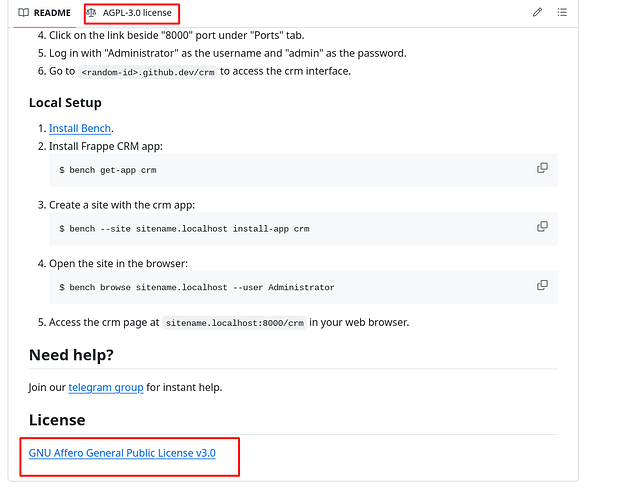I thought the same, but I’m getting worried because someone pointed out (ERPNext integration?) - and I hadn’t noticed this before - that Frappe started using the AGPL license for many products. I think this should be discussed in a different topic because it really reminds me of Odoo’s sneaky steps.
Correct me if I’m wrong, but I haven’t read anything about this until now.
Actually, please see the attachment. It’s kind of misleading because the License section is like every other GPL-licensed Frappe product, and I hadn’t noticed that badge at the top before.
